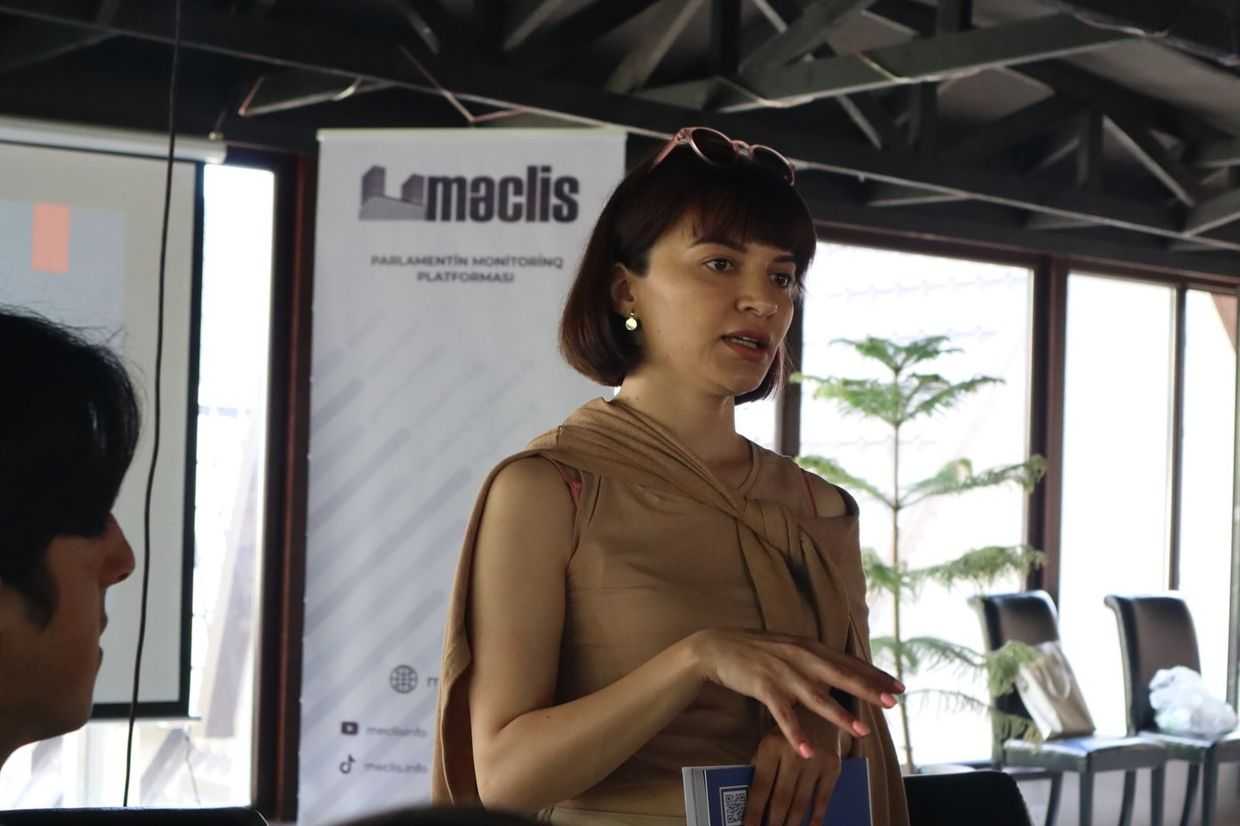
On 17 December, the case of Azerbaijani independent media outlet Abzas Media officially went to court.
The defendants — Abzas Media Director Ulvi Hasanli, Editor-in-Chief Sevinj Vagifqizi, Deputy Director Magomed Kekalov, journalists Nargiz Absalamova and Elnara Gasimova, as well as Editor of Turan’s Economic Department Hafiz Babali, and economist and RFE/RL employee Farid Mehralizada, who were associated with Abzas Media — have been held in pre-trial detention for over one year on charges of smuggling.
MeydanTV reported that before the court process began on Tuesday, local journalists complained on social media that the court security officers did not allow them to enter the courtroom.
According to lawyer Shahla Humbatova, the seats inside the courtroom were taken up by law students as a way to stop the general public from viewing the trial.
Speaking to MedyanTV, Humbatova claimed that 20 of these alleged law students had actually already passed the judge’s exam and begun to practice law themselves.
Following a protest from journalists and the defendants, the courtroom was cleared.
As soon as the court session began, one of the defendants, journalist Sevinj Vagifqizi, objected to the presence of two of the three judges presiding over the case.
According to Vagifqizi, Abzas Media had previously conducted an investigation into judges Rasim Sadikhov and Novruz Karimov, finding that they had both made decisions based on political orders from above, citing in particular the case of human rights lawyer Intigam Aliyev, who was sentenced to seven years and six months in prison in 2015. The European Court of Human Rights (ECHR) later found that the trial had violated Article 18 (restriction of rights and freedoms for purposes not provided for) of the Convention.
‘It has been proven that you [Sadikhov] made decisions based on political orders. You are not the one who will make decisions of your own free will,’ Vagifqizi said in court.
Despite the objections, Sadikhov and Karimov refused to recuse themselves from the case.
The next request from the defendants was to be moved from the defendants’ cage and instead be seated next to their lawyers, citing the need to have regular consultations between the lawyers and their clients during the trial.
This time, the court granted the petition.
According to Turan’s editor Babali, all of the defendants, himself included, were being punished for exposing corruption in Azerbaijan.
‘We prepared anti-corruption investigations. Society is shocked that we are sitting here. They checked my bank accounts, they were clean. I have nothing to do with smuggling. It is true, I am the author of six articles. I have been a journalist for 35 years’, Babali said in court. ‘They stole a year from my life. We are victims of political and legal terror’.
Following their first court appearance on Tuesday, the Committee to Protect Journalists called on Azerbaijani authorities to drop the charges against the defendants.
‘The trial of RFE/RL’s Farid Mehralizada and six members of Azerbaijan’s most prominent anti-corruption investigative outlet, Abzas Media, epitomises the way the Azerbaijani government has used retaliatory criminal charges to lock up vast swathes of the country’s leading independent journalists over the past year,’ Gulnoza Said, CPJ’s Europe and Central Asia program coordinator, said.
Substantive hearings of the case have been scheduled for 28 December.









